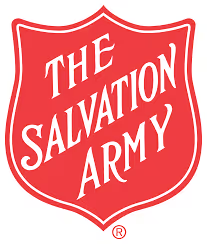






5-Star Valuation Services, Loved by Hundreds
Frequently Asked
Questions
No Frequently Asked Questions Found.
These assignments typically follow professional standards such as USPAP and include analysis of market data, comparable sales, and asset-specific factors like condition, provenance, or economic outlook. The report helps demonstrate that the claimed value is reasonable, well supported, and prepared by a qualified appraiser.
Specialty properties encompass a diverse range of assets, including commercial facilities like manufacturing plants and hotels, agricultural lands with specific productivity factors, recreational properties such as golf courses and marinas, and historically significant buildings with preservation considerations. Each of these property types demands a deep understanding of its unique attributes and market dynamics.
The appraisal methodology for these distinctive properties involves a comprehensive, multi-layered analysis. Appraisers begin with an in-depth examination of the property's physical characteristics, considering critical factors like location, current use, zoning regulations, environmental conditions, and potential legal restrictions. This initial assessment provides a foundational understanding of the property's intrinsic qualities.
Market analysis forms another crucial component of the specialty property appraisal. Appraisers meticulously evaluate local market conditions, recent comparable sales, and broader economic trends that might influence the property's value. This approach goes beyond simple comparative metrics, incorporating specialized insights into demand, potential income generation, and unique buyer preferences specific to the property type.
Forward-looking considerations are equally important in specialty real estate appraisals. Potential future developments, such as infrastructure projects or anticipated zoning changes, are carefully analyzed to understand their potential impact on the property's long-term value. This predictive approach ensures a more comprehensive and accurate valuation.
The complexity of specialty real estate appraisals underscores the importance of engaging a licensed professional with specialized expertise in the specific property type. By leveraging deep market knowledge and sophisticated analytical techniques, these appraisers provide clients with a reliable, nuanced assessment that captures the full complexity of unique real estate assets.
The digital appraisal process leverages multiple information-gathering techniques, including detailed photographic documentation, comprehensive email or text-based property information collection, and advanced virtual assessment methods. This approach is particularly advantageous for unique or complex property types such as mixed-use developments, historical structures, and specialized commercial spaces.
For properties requiring deeper examination, many appraisal services incorporate live video conferencing technologies like Zoom, Google Meet, Skype, or FaceTime. These virtual platforms enable real-time property walkthroughs, allowing appraisers to capture nuanced details and address specific questions directly with property owners or representatives.
Digital appraisal methodologies eliminate traditional barriers like scheduling conflicts and geographic limitations. Property owners can now receive professional, detailed valuations without extensive travel or time-consuming in-person appointments. The streamlined process ensures accuracy, convenience, and accessibility while maintaining the highest professional standards of traditional real estate appraisal practices.
Technological integration has transformed specialty real estate appraisals into a more flexible, efficient, and client-friendly service that delivers precise property valuations through innovative digital assessment techniques.
Commercial appraisers focus on business-oriented properties, analyzing office buildings, shopping centers, industrial sites, and multi-family complexes. Their assessments incorporate critical financial metrics like potential rental income, occupancy rates, and future development opportunities.
Agricultural appraisers concentrate on rural and farming properties, evaluating intricate elements such as soil quality, crop productivity, land potential, and regulatory zoning constraints. Their specialized skills enable comprehensive assessments of agricultural real estate that extend far beyond basic land valuation.
Environmental impact appraisers examine properties with complex ecological considerations, including sites within wetlands, flood zones, or areas with potential contamination. They meticulously assess environmental regulations, potential liabilities, and how ecological factors directly influence property market value.
Luxury home appraisers bring sophisticated expertise to high-end residential properties, analyzing unique architectural features, premium amenities, location prestige, and refined market dynamics in affluent neighborhoods. Their nuanced approach captures the intricate value propositions of exceptional residential properties.
Historic property appraisers specialize in properties with significant cultural or architectural heritage, considering preservation status, historical significance, development restrictions, and unique market positioning. Their evaluations balance historical preservation requirements with contemporary market realities.
Special use property appraisers address unique property types like educational institutions, religious facilities, and specialized recreational spaces. They evaluate properties based on functional utility, community impact, and potential adaptability within specific market contexts.
Multi-family residential appraisers analyze properties with multiple housing units, focusing on rental income potential, unit configurations, location advantages, and broader market trends. Their comprehensive assessments provide critical insights for real estate investors and financial institutions.
Professional appraisals for specialty real estate serve multiple critical purposes across financial, legal, and strategic domains. Tax authorities, legal systems, insurance providers, and potential investors rely on these specialized evaluations to make informed decisions and ensure accurate property representation.
For tax purposes, a detailed appraisal becomes essential when documenting property values, especially for donations or complex tax scenarios. Legal proceedings such as estate settlements, divorce negotiations, and property disputes require precise property valuations to establish fair and equitable resolutions.
Insurance considerations also benefit significantly from specialty real estate appraisals. These assessments provide documented evidence of a property's true value, enabling property owners to secure appropriate coverage that reflects the unique characteristics and potential risks associated with their assets.
Investors and financial institutions depend on these specialized appraisals to evaluate potential investment opportunities, assess market trends, and understand the intrinsic value of properties that fall outside conventional real estate categories. The insights gained from comprehensive evaluations help mitigate financial risks and support strategic decision-making.
The complexity of specialty real estate demands a sophisticated approach to valuation. Professional appraisers utilize advanced methodologies, in-depth market analysis, and specialized knowledge to provide accurate and reliable property assessments that meet the diverse needs of stakeholders across various industries.
Why Are Specialty Real Estate Appraisals Critical for Charitable Giving?
Specialty real estate appraisals are crucial in the charitable giving landscape, serving as a critical bridge between donors and non-profit organizations. These specialized evaluations ensure a transparent, fair, and legally compliant process when donating property.
Key Benefits of Specialty Real Estate Appraisals
Establishing Accurate Market Value
- Provides a credible, objective assessment of property value
- Determines precise tax deduction amounts for donors
- Prevents potential conflicts with tax authorities
- Ensures full compliance with IRS regulations
Strategic Support for Charitable Organizations
- Enables non-profits to effectively plan resource allocation
- Helps organizations maximize donated property potential
- Supports strategic decision-making for property utilization
- Facilitates optimal use through sale, leasing, or direct service delivery
Donor Protection and Confidence
- Creates documented evidence of property valuation
- Provides crucial documentation for potential tax audits
- Reduces risk of valuation disputes
- Increases donor confidence in the charitable giving process
Promoting Philanthropic Engagement
- Demystifies the property donation process
- Reduces donor hesitation through transparent valuation
- Encourages more substantial charitable contributions
- Builds trust in philanthropic transactions
Ultimately, specialty real estate appraisals transcend simple valuation. They represent a critical mechanism for creating trust, ensuring compliance, and maximizing the impact of charitable giving. By providing clear, professional, and accurate assessments, these appraisals empower donors and non-profit organizations alike.
Navigating the Complexities of Property Valuation for Donations
Donating real estate to a charitable organization is a powerful philanthropic gesture that requires meticulous attention to detail in property valuation. Understanding the intricacies of this process is essential for ensuring both the donor's tax benefits and the charitable organization's maximum impact.
Understanding Property Valuation for Charitable Donations
The valuation process varies significantly depending on the type of property being donated, whether it's residential, commercial, or undeveloped land. Each property category demands a unique approach to accurately determining its fair market value.
Critical Factors in Property Valuation
- Comprehensive Market Analysis
- Evaluate current real estate market conditions
- Analyze comparable property sales
- Assess location-specific trends and economic factors
- Detailed Property Condition Assessment
- Conduct thorough property inspections
- Evaluate major systems (structural, electrical, plumbing)
- Identify potential repair needs or value-enhancing improvements
- Regulatory and Compliance Considerations
- Understand IRS guidelines for charitable property donations
- Recognize documentation requirements for tax deductions
- Ensure professional appraisal for donations above specific thresholds
The Importance of Qualified Appraisal Expertise
Selecting a qualified appraiser with specialized experience in charitable donations is crucial. These professionals bring:
- In-depth understanding of valuation nuances
- Compliance with ethical and legal standards
- Comprehensive knowledge of tax implications
Maximizing Donation Impact
A precise and thorough property valuation does more than satisfy regulatory requirements. It:
- Protects the donor's financial interests
- Ensures maximum benefit for the charitable organization
- Maintains the integrity of the philanthropic process
By approaching real estate donations with careful consideration and professional guidance, donors can transform their generosity into meaningful support for charitable causes while navigating complex valuation challenges.
Which Properties Qualify for Charitable Donation Appraisals?
When considering a charitable donation of real estate, understanding which properties qualify is crucial. The IRS has specific guidelines that determine eligibility for charitable donation appraisals.
Qualified Property Types for Charitable Donations
- Residential Properties
- Single-family homes
- Condominiums
- Co-op units
- Multi-family residences
- Must include at least one unit that is residentially occupied or available for occupancy
- Commercial Properties
- Office buildings
- Retail spaces
- Industrial facilities
- Particularly valuable when no longer needed for business purposes
- Vacant Land
- Raw land with development potential
- Must have intrinsic value or potential use aligned with charitable missions
- Special Purpose Properties
- Churches
- Schools
- Hospitals
- Structures directly tied to non-profit operations
- Easements and Rights
- Conservation easements
- Development rights
- Can help protect land while providing tax benefits
- Waterfront and Recreational Properties
- Properties with natural resources
- Waterfronts
- Parks
- Recreational areas
Key Considerations for Donors
Donors should carefully consider the following when pursuing a charitable real estate donation:
- Work with qualified appraisers who specialize in charitable donation assessments
- Understand the specific requirements of the intended charitable organization
- Verify the property's potential value and impact
- Consult with tax professionals to maximize potential tax benefits
Proper valuation is essential to ensure compliance with IRS regulations and maximize the potential charitable contribution.
What Should You Expect During a Specialty Real Estate Appraisal?
Navigating a specialty real estate appraisal for charitable donation purposes involves several key stages that require careful attention and preparation. By understanding the process, you can ensure a thorough and accurate valuation that supports your philanthropic objectives.
Comprehensive Property Analysis
The appraisal begins with an in-depth evaluation of your property, which includes:
- Detailed assessment of physical condition
- Examination of property location
- Identification of unique characteristics
- Review of applicable zoning laws and property restrictions
Comparative Market Research
A critical component of the appraisal is the comparative analysis, which involves:
- Investigating sales data for similar properties
- Determining fair market value based on local market conditions
- Accounting for unique property features that may impact valuation
Documentation and Preparation
Success in the appraisal process relies heavily on proper documentation. Prepare the following materials:
- Title deeds
- Previous appraisal reports
- Zoning information
- Property improvement records
On-Site Property Inspection
The appraiser will conduct a thorough on-site examination that typically includes:
- Precise property measurements
- Photographic documentation
- Detailed assessment of property features
- Verification of property condition
Final Appraisal Report
Upon completion of the evaluation, you will receive a comprehensive report containing:
- Detailed property valuation
- Explanation of valuation methodologies
- Supporting documentation
- Considerations that influenced the final value
Understanding these steps empowers you to approach the specialty real estate appraisal process with confidence, ensuring an accurate valuation that meets both charitable donation requirements and tax regulations.
Strategic Considerations for Maximizing Your Charitable Impact
Strategic Planning for Impactful Charitable Real Estate Donations
Charitable real estate donations require careful strategic planning to maximize both philanthropic impact and financial benefits. By thoughtfully approaching the donation process, you can create meaningful change while optimizing potential tax advantages.
Key Strategic Considerations
- Property Value Assessment
- Obtain a professional appraisal to determine accurate fair market value
- Ensure precise valuation for tax documentation
- Prevent potential IRS disputes
- Maximize potential tax deductions
- Tax Implications and Planning
- Consult a qualified tax advisor for comprehensive guidance
- Understand IRS guidelines for charitable property donations
- Analyze how donation impacts your specific financial situation
- Explore potential tax deduction strategies
- Strategic Donation Timing
- Align donation with your annual income fluctuations
- Consider making donations after high-income years
- Evaluate potential tax advantages of timing
- Optimize potential deductions and taxable income reduction
- Selecting the Right Charitable Organization
- Identify organizations aligned with your philanthropic values
- Verify the organization's capacity to manage real estate donations
- Review specific requirements and property acceptance criteria
- Ensure organizational compatibility with your donation goals
- Measuring Long-Term Philanthropic Impact
- Evaluate potential ongoing support for charitable missions
- Consider multiple donation utilization strategies
- Understand how property can create sustainable change
- Assess potential long-term organizational benefits
Comprehensive strategic planning transforms a simple property donation into a powerful philanthropic tool, enabling you to create meaningful social impact while potentially achieving significant financial benefits.
Understanding the Tax Landscape of Real Estate Donations
When considering charitable donations, real estate can be a significant and impactful asset to give. Understanding the tax implications surrounding real estate donations is crucial for both donors and charities.
Key Factors in Real Estate Donation Tax Considerations
Fair Market Value Assessment
To maximize tax benefits, donors must obtain a professional appraisal that accurately determines the property's value. An accurate appraisal serves two critical purposes:
- Substantiates the tax deduction claim with the IRS
- Ensures the donor receives the correct tax deduction based on the property's true value
Property Ownership and Tax Deduction Impact
The duration of property ownership significantly influences tax deduction potential:
- Properties held over one year: Qualify for full fair market value deduction
- Properties held less than one year: Deduction may be limited to the original cost basis
Property Type Considerations
Different property types have unique appraisal and donation characteristics:
- Residential properties
- Commercial real estate
- Undeveloped land
- Timeshares
- Properties with existing liabilities (e.g., mortgages)
Tax Liability and Financial Planning
Real estate donations can have substantial tax implications:
- Potential for significant reduction in taxable income
- Possible lower overall tax liability
- Strategic financial planning opportunity
Regulatory Landscape
Donors must be aware of:
- State-specific charitable donation regulations
- Local jurisdictional variations
- Potential need for professional tax guidance
While navigating the tax landscape of real estate donations can be complex, understanding these key elements helps donors make informed and financially strategic decisions.
How to Choose the Right Appraiser for Your Unique Property
Key Factors in Selecting the Right Appraiser for Charitable Donations
Choosing an appraiser for a charitable property donation requires careful consideration of several critical factors. The right professional will not only provide an accurate valuation but also ensure compliance with complex regulatory requirements.
Essential Credentials and Specialized Expertise
- Verify professional certifications such as:
- Accredited Senior Appraiser (ASA)
- Certified Residential Appraiser (CRA)
- State-specific professional appraisal licenses
- Confirm specialized expertise in your specific property type:
- Residential properties
- Commercial real estate
- Unique or unconventional assets
- Specialized facilities
Comprehensive Understanding of Charitable Donation Regulations
- Deep knowledge of IRS guidelines for charitable property donations
- Proven track record of preparing documentation that withstands potential audits
- Experience working directly with charitable organizations and donors
- Ability to navigate complex tax implications of property donations
Local Market Proficiency
- Extensive understanding of local real estate market dynamics
- Insights into:
- Current market conditions
- Neighborhood development trends
- Zoning regulations
- Potential future property value influences
- Preferably a local appraiser with direct market experience
Professional Communication and Transparency
- Clear, comprehensive appraisal reporting
- Ability to explain valuation methodology
- Responsive to client questions and concerns
- Willingness to provide detailed documentation
Selecting the right appraiser is a critical step in ensuring your charitable property donation is accurately valued, legally compliant, and aligned with your philanthropic goals.
Overcoming Challenges in Specialty Property Valuation
Key Challenges in Specialty Property Valuation for Charitable Donations
Valuing specialty properties for charitable donation purposes requires specialized expertise and a nuanced approach to overcome several critical challenges.
Complex Valuation Hurdles
- Limited Comparable Sales: Specialty properties often lack direct market comparisons, making traditional valuation methods challenging.
- Unique Property Characteristics: Properties like historical sites, conservation easements, and fractional interests require advanced valuation techniques.
Strategic Valuation Approaches
- Alternative Valuation Methods:
- Income capitalization approach
- Cost approach
- Comprehensive market analysis
- In-Depth Market Research: Identifying unique property attributes that impact market value
Regulatory and Compliance Considerations
Navigating complex IRS requirements is crucial for valid charitable donation appraisals. Key focus areas include:
- Strict documentation standards
- Precise valuation methodologies
- Compliance with tax regulation guidelines
Managing Emotional and Subjective Factors
Successful specialty property appraisals require a delicate balance between:
- Objective market assessment
- Emotional significance to donors
- Accurate and fair property valuation
Critical Success Factors
Effective specialty property appraisals demand:
- Comprehensive market knowledge
- Advanced analytical skills
- Deep understanding of regulatory frameworks
- Clear communication with stakeholders
Ultimately, successful specialty property valuation for charitable donations requires a sophisticated, multifaceted approach that combines technical expertise, regulatory compliance, and nuanced market understanding.
Optimizing Your Property's Appraisal Value
Maximizing Your Property's Appraisal Value for Charitable Donations
Accurately determining a property's appraisal value is critical when making a charitable donation. By strategically preparing and understanding key valuation factors, donors can optimize their philanthropic contributions while ensuring compliance with tax regulations.
Key Strategies for Optimizing Property Appraisal Value
- Comprehensive Market Understanding
- Research current local real estate market conditions
- Track neighborhood developments and economic trends
- Identify factors that positively influence property valuation
- Strategic Property Enhancements
- Prioritize consistent property maintenance
- Consider targeted renovations and upgrades
- Focus on improvements that demonstrably increase property value
- Invest in energy-efficient features and modern amenities
- Detailed Comparative Analysis
- Gather comprehensive documentation of comparable property sales
- Highlight unique property attributes
- Prepare detailed property feature documentation
- Zoning and Development Potential Assessment
- Investigate current zoning classifications
- Research potential future development opportunities
- Understand local zoning ordinances and restrictions
- Professional Appraisal Collaboration
- Select appraisers with specialized charitable donation expertise
- Ensure compliance with IRS valuation standards
- Provide comprehensive property documentation
Conclusion
Thoughtful preparation and strategic documentation can significantly enhance your property's appraisal value. By approaching the donation process systematically, donors can maximize their philanthropic impact while maintaining rigorous financial and legal standards.
Success Stories: Transforming Real Estate into Meaningful Contributions
Essential Documentation for Charitable Property Donations
When considering a charitable property donation, gathering the right documentation is crucial for ensuring compliance with tax laws and protecting your interests. Proper documentation substantiates the property's value and facilitates a smooth transfer process.
Key Documentation for Charitable Property Donations
1. Professional Appraisal Report
- Critical for determining the property's fair market value at the time of donation
- Must be conducted by a qualified appraiser familiar with specialty real estate nuances
- Required by the IRS for donations exceeding $5,000
- Provides a comprehensive valuation that supports your charitable contribution
2. IRS Form 8283
- Mandatory for non-cash charitable donations valued over $500
- Details the property and confirms the deduction amount
- Requires signatures from both the donor and receiving charity
- Essential for tax reporting and documentation purposes
3. Legal Transfer Documentation
- Includes official deed and title transfer documents
- Ensures clean and legal transfer of property ownership
- Confirms the property is conveyed without existing encumbrances
- Protects both donor and receiving charity's legal interests
4. Charity Acknowledgment Letter
- Written confirmation from the receiving charity
- Should include:
- Donor's name
- Detailed property description
- Statement about goods or services received (if any)
- Critical for tax documentation and record-keeping
5. Supplementary Supporting Documentation
- Historical property details
- Previous appraisal records
- Legal documents such as:
- Zoning information
- Environmental assessments
- Property history
Comprehensive documentation serves multiple critical purposes: it ensures regulatory compliance, maximizes potential tax benefits, and provides transparency throughout the charitable donation process. Careful preparation and thorough record-keeping are the cornerstones of a successful property donation.
Ensuring Your Philanthropic Goals Are Precisely Valued
When considering charitable donations, understanding the true value of your property is crucial for maximizing philanthropic impact. Specialty real estate appraisals play a critical role in ensuring your contribution meets both legal requirements and personal philanthropic objectives.
Why Precise Valuation Matters
- Tax Deduction Accuracy: A professional appraisal provides an expert assessment of fair market value, which is essential for determining appropriate tax deductions
- Comprehensive Evaluation: Valuation considers multiple factors including:
- Property location
- Current zoning regulations
- Property condition
- Prevailing market trends
Benefits of Specialized Charitable Donation Appraisals
- Credibility Enhancement
A certified appraiser specializing in charitable donations ensures a thorough evaluation that adds legitimacy to your contribution, building trust with receiving organizations.
- Regulatory Compliance
Specialized appraisals demonstrate deep understanding of IRS regulations, protecting you from potential valuation disputes and ensuring your charitable intentions are both honored and legally sound.
- Strategic Philanthropic Insights
Detailed appraisals can uncover unexpected asset potential, allowing you to donate more strategically and support causes most effectively.
Key Considerations for Donation Appraisals
By investing in a qualified, specialized appraiser, you demonstrate a commitment to responsible giving. This approach not only maximizes the financial impact of your donation but also provides transparency that can inspire others in your community.
A comprehensive appraisal transforms your charitable contribution from a simple transaction into a carefully considered, meaningful gesture of support.
View all Locations
APPRAISEITNOW APPRAISERS ARE BEST-IN-CLASS & CREDENTIALED BY LEADING APPRAISAL ORGANIZATIONS LIKE THE ISA, ASA, & MORE.






.svg)








